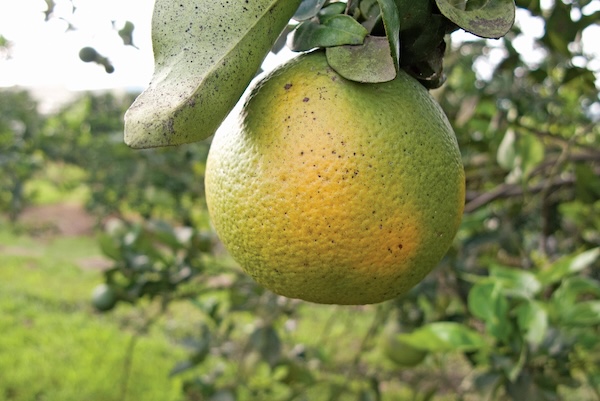Citrus growers in the US have been under siege for nearly two decades as “citrus greening” disease continues its unchecked spread. Nearly all of Florida’s orange groves have now been infected, and the devastating disease has also spread to other key orange-producing regions in the US and around the globe. With the entire industry bleeding cash, major stakeholders are now looking to artificial intelligence to help find a solution.
One of the biggest stakeholders here in the US is Coca-Cola, which owns the “Minute Maid” and “Simply Beverages” brands. The two brands combined account for about a third of the US orange juice market. Coca-Cola is also a founding member of the “MIT Generative AI Impact Consortium” (MGAIC), along with Open AI, Analog Devices, Tata Group, SK Telecom and TWG Global. The consortium “brings MIT researchers together with industry leaders to explore how generative AI can spawn transformative solutions for real-world challenges.”
MGAIC recently announced its first major initiative, “Save the Orange,” which aims to tackle citrus greening. The project was developed in collaboration with Brazil-based Fundecitrus, and Invaio Sciences. Generative AI is being used to compress research timelines, with the project modeled on collaborative hackathons. According to Pratik Thakar, Global Vice President and Head of Generative AI at Coca-Cola, “Citrus greening has impacted farmers for over 15 years; now it’s high time to combine Generative AI with AgriTech, Biotech, and Life Science to accelerate research and innovation.”
For the country’s orange growers, a solution can’t come soon enough. US orange production has absolutely collapsed since citrus greening was discovered. Since 2000, domestic orange production has plummeted some -80%. Most of the country’s domestic production (84%) is used in juice.
However, production is now so low that US citrus producers can no longer support domestic demand.
Citrus greening was first detected in Florida in 2005. According to the American Society of Horticultural Sciences, as trees are affected by the disease, they suffer premature fruit drop, the fruit harvested is smaller and misshapen, and the juice quality is compromised, all resulting in lower yields. Between 2002 and 2017, the number of citrus growers in Florida decreased from 7,389 to 2,775 (a 62% decline), and the number of juice processing facilities decreased from 41 in 2003 to 14 in 2017 (a 66% decline). Over the last two decades, orange production in the Sunshine State has decreased by -92.5%.
Beyond the US, greening is believed to be responsible for the death of more than 50 million trees in Asia and 10 million in Africa over the last seven years. It’s also blamed for $120 million in losses every year for growers in Brazil, the world’s largest orange producer and orange juice exporter, and a now a key supplier to the US. Over 40% of Brazil’s orange trees are estimated to be infected.
Both the state and federal governments have invested hundreds of millions of dollars in research over the years to combat citrus greening, with limited success. But after new developments in gene editing technology in the past few years, researchers have been able to create tree varieties that are tolerant of or resistant to citrus greening, giving the industry some hope. Coca-Cola and the “Save the Orange” project hope to advance scientific knowledge with AI. Coca-Cola’s Thakar notes, “This complex issue demands a unique level of partnership and collaboration to slow down the spread…and ultimately find a long-term solution.” (Sources: Food and Wine, FoodDive, USDA, AFBF)








